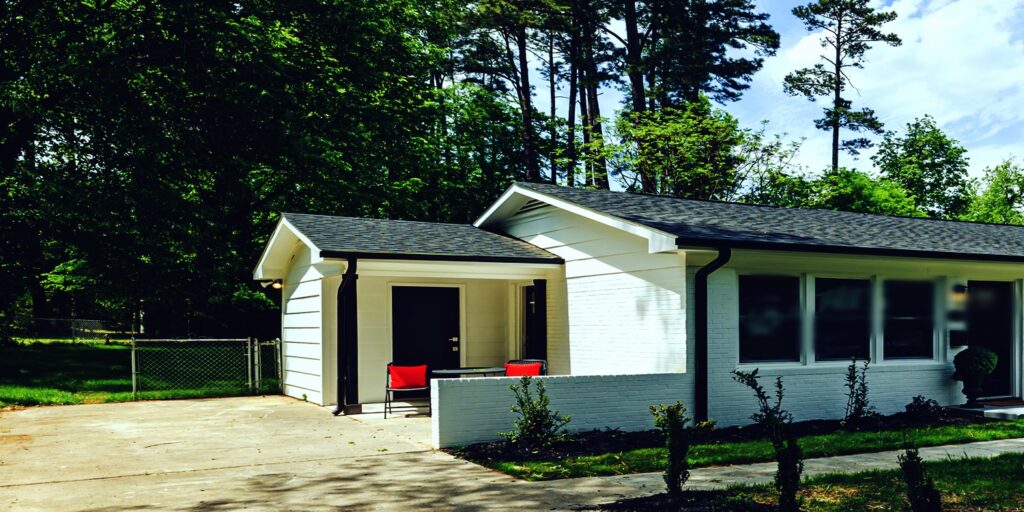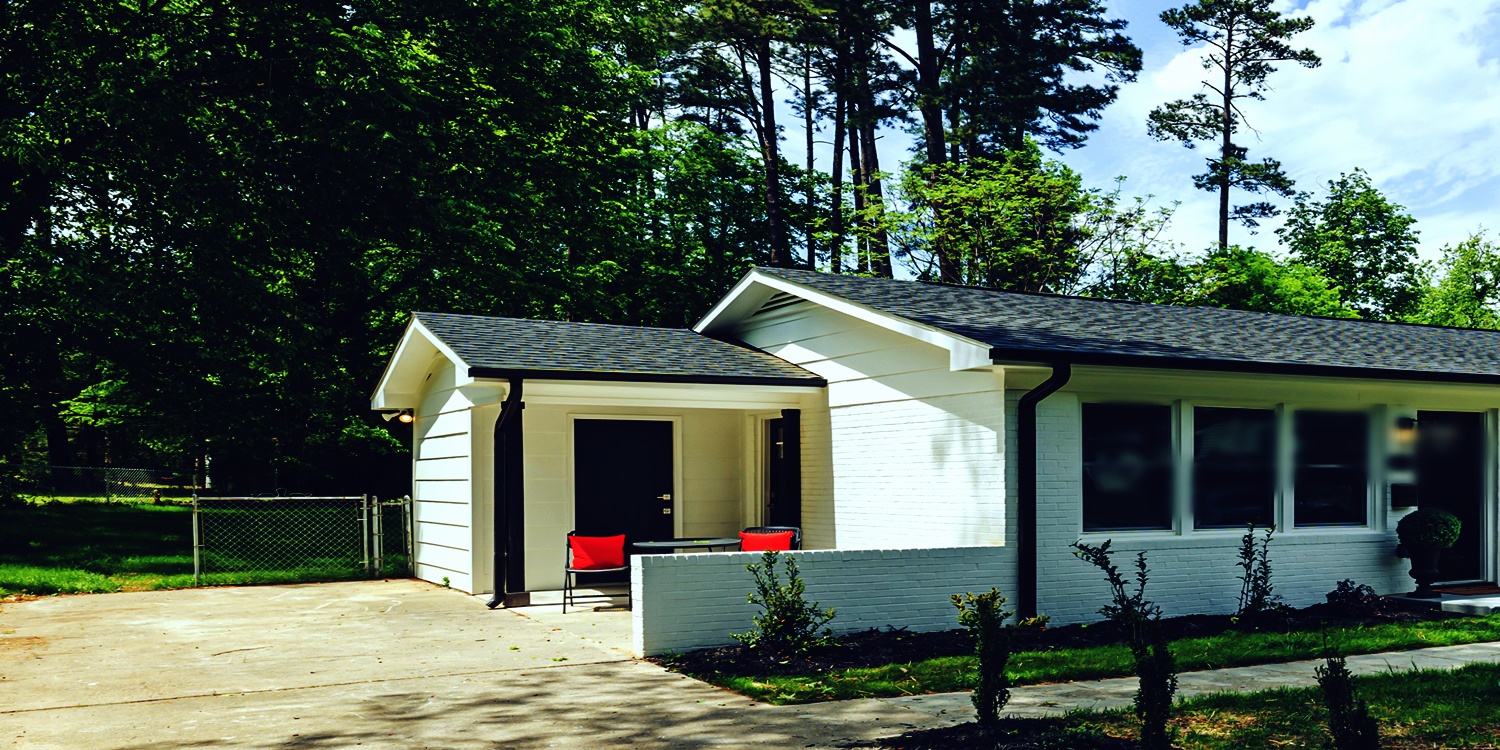[Buying real estate in a foreign country can be an exciting and potentially lucrative investment opportunity for non-US residents. However, it also comes with its own set of challenges and considerations. To ensure a successful and informed real estate purchase, it is crucial to ask the right questions and gather the necessary information beforehand. In this article, we will explore the key questions that non-US residents should ask before buying real estate, covering topics such as local laws and regulations, financial implications, market trends, neighborhood evaluation, financing options, rental income potential, engaging with local experts, and long-term residency and exit strategies. By addressing these questions, individuals can make well-informed decisions and navigate the complexities of purchasing real estate in a foreign country.] – AI Content Generator

1. Understanding Local Real Estate Laws and Regulations
1.1 Researching Foreign Ownership Restrictions
[Before diving into the exciting world of real estate, it’s important for non-US residents to familiarize themselves with any restrictions on foreign ownership. Each country has its own set of rules and regulations governing property ownership by non-residents. Some countries may limit the types of properties that can be purchased or impose additional taxes or fees on foreign buyers. Researching these restrictions will help you determine if buying real estate in a particular location is feasible for you.] – AI Content Generator
1.2 Familiarizing Yourself with Property Transfer Processes
[Buying real estate in a different country means navigating unfamiliar property transfer processes. Understanding how properties are bought and sold, the required documentation, and the role of lawyers or notaries in the process will save you from any surprises along the way. Take the time to educate yourself about the local procedures to ensure a smooth and hassle-free real estate transaction.] – AI Content Generator
1.3 Understanding Zoning and Land Use Regulations
[Zoning and land use regulations can greatly impact your investment in real estate. These regulations dictate how properties can be used and developed within a particular area. Paying attention to zoning laws will help you avoid any unpleasant surprises, such as finding out that you can’t convert a property for commercial use when that was your intention. Understanding these regulations in advance will enable you to make informed decisions about the potential uses and future value of the property you’re considering.] – AI Content Generator
2. Assessing the Financial Implications and Costs
2.1 Calculating the Total Purchase Cost
[Buying real estate involves more than just the purchase price. There are additional costs to consider, such as agent fees, legal fees, taxes, and other transaction-related expenses. Calculating the total purchase cost will give you a realistic picture of the financial commitment required for acquiring the property. It’s essential to have a clear understanding of all the associated expenses to avoid any financial surprises later on.] – AI Content Generator
2.2 Factoring in Property Taxes and Maintenance Expenses
[Owning a property comes with ongoing financial responsibilities. Property taxes and maintenance expenses can add up quickly, and they vary from country to country. Research the local property tax rates and any additional taxes or fees that may apply to non-resident owners. Additionally, consider the costs of upkeep, repairs, and potential renovations. Being aware of these ongoing expenses will help you budget accordingly and ensure that the investment remains financially viable.] – AI Content Generator
2.3 Considering Foreign Exchange Rates and Currency Risks
[For non-US residents, exchange rates between their home currency and the local currency can significantly impact the cost of buying and owning real estate. Exchange rates fluctuate, and currency risks can impact the return on your investment. Understanding and considering these factors will help you assess the affordability of the property and any potential risks associated with currency fluctuations.] – AI Content Generator
3. Researching Market Trends and Property Values
3.1 Analyzing Historical Price Trends
[To make an informed decision about buying real estate, it’s crucial to research and analyze historical price trends in the local market. Understanding how property values have changed over time can provide insights into the potential return on investment and the stability of the market. This analysis will help you determine whether the current price of the property aligns with market trends and whether it’s a good time to enter the market.] – AI Content Generator
3.2 Comparing Property Values in Different Areas
[Location plays a significant role in property values. Research and compare property prices in different areas to get a sense of the market and how prices vary based on location. This comparison will aid you in identifying areas that offer better value for your investment and help you narrow down your options to the most suitable locations.] – AI Content Generator
3.3 Assessing Market Supply and Demand
[Understanding the supply and demand dynamics in the local real estate market is crucial for making a sound investment decision. Research market trends, such as the number of properties available for sale versus the number of buyers in the market. High demand and limited supply can drive up prices, while an oversupply of properties may indicate potential risks. Evaluating supply and demand will give you a better idea of the market conditions and the potential for future appreciation.] – AI Content Generator
4. Evaluating the Neighborhood and Location
4.1 Investigating Crime Rates and Safety
[When buying real estate, it’s essential to consider the neighborhood’s safety and crime rates. Research crime statistics, speak to local residents, and visit the area to assess its overall safety. A safe neighborhood not only provides peace of mind but also supports property value appreciation in the long run.] – AI Content Generator
4.2 Assessing Proximity to Amenities and Services
[The location of a property can greatly impact its desirability and potential rental or resale value. Assess the proximity to amenities and services such as schools, hospitals, shopping centers, public transportation, and recreational facilities. Properties in convenient locations with easy access to essential services tend to be more desirable to buyers or renters.] – AI Content Generator
4.3 Understanding Future Development Plans and Infrastructure
[To gauge the long-term potential of a property, it’s important to understand any future development plans and infrastructure projects in the area. New infrastructure, such as roads, public transportation, or commercial developments, can significantly influence property values. Research any planned developments to assess how they may impact the neighborhood and property values in the future.
Remember, buying real estate as a non-US resident involves additional considerations, so take the time to thoroughly research and understand the local laws, financial implications, market trends, and location factors. Armed with this knowledge, you can make a confident and informed decision when it comes to investing in real estate abroad.8.1 Evaluating Long-term Residency Options and Requirements] – AI Content Generator
REAL ESTATE ONTARIO CANADA & MIDWEST USA
- Single Family
- Multi-Family
- Commercial
- Buying, Selling, Renting
- Millions
- Financing
- Property Mangement
- Investing
FIND OUT ABOUT MBHVIM REI OFFERS
5. Exploring Financing Options and Tax Considerations
5.1 Researching Mortgage Options for Non-US Residents
[Buying real estate is a big financial decision, and for non-US residents, it’s important to explore the available mortgage options. While obtaining a mortgage as a non-US resident may be slightly more challenging, it is not impossible. Research various lenders and financial institutions that cater to international buyers to understand the requirements and terms. Be prepared to provide relevant documentation, such as proof of income and assets, as well as a good credit history.] – AI Content Generator
5.2 Understanding Tax Implications and Obligations
[Taxes can be a tricky subject, and when it comes to real estate, it’s no different. As a non-US resident, it is crucial to understand the tax implications and obligations associated with owning property in the US. Consult with a tax professional who specializes in international taxation to ensure you comply with both US and your home country’s tax laws. They will guide you on reporting rental income, capital gains, and any potential exemptions or deductions you may be eligible for.] – AI Content Generator
5.3 Exploring Potential Tax Benefits or Exemptions
[While taxes may seem daunting, there could be potential tax benefits or exemptions available to non-US residents investing in real estate. Familiarize yourself with applicable tax treaties between your home country and the US, as these may offer certain advantages. Additionally, research any local or state-specific tax incentives that could reduce your tax liability. Keep in mind that tax laws can change, so staying updated and seeking professional advice is essential.] – AI Content Generator
6. Analyzing Potential Rental Income and Investment Returns
6.1 Evaluating Rental Market and Demand
[If you’re considering buying real estate as an investment property, it’s vital to assess the rental market and demand in the area. Look into factors like vacancy rates, rental prices, and occupancy rates. Is there steady demand for rental properties? Are there any local regulations or restrictions that may impact your ability to rent out the property? Understanding the rental market dynamics will help you make informed decisions and maximize your potential rental income.] – AI Content Generator
6.2 Calculating Potential Rental Income and Expenses
[Before diving into real estate investment, crunch the numbers to determine the potential rental income and expenses. Consider factors like property management fees, maintenance costs, property taxes, insurance, and potential vacancies. By estimating your expenses and comparing them to the expected rental income, you can gauge the profitability of the investment. Don’t forget to leave room for unexpected expenses, as surprises can pop up when you least expect them.] – AI Content Generator
6.3 Estimating Return on Investment and Capital Appreciation
[When investing in real estate, it’s important to consider not only the rental income but also the potential for capital appreciation. Research historical property values and market trends in the area to gauge the likelihood of property appreciation over time. Additionally, factor in the costs associated with selling the property in the future, such as agent commissions and closing costs. Evaluating the potential return on investment will help you determine whether the property aligns with your financial goals.] – AI Content Generator
7. Engaging with Local Real Estate Professionals and Experts
7.1 Seeking Guidance from Licensed Realtors or Brokers
[Navigating the real estate market can be overwhelming, especially in a foreign country. Engage with licensed realtors or brokers who have experience working with international buyers. They can provide valuable insights into the local market, help you find suitable properties, negotiate on your behalf, and guide you through the entire buying process. Their expertise and knowledge will be invaluable in making informed decisions.] – AI Content Generator
7.2 Consulting with Local Attorneys and Accountants
[To ensure a smooth and legally compliant real estate transaction, it’s advisable to consult with local attorneys and accountants. They can provide guidance on legal aspects, including contracts, property rights, and any specific regulations or restrictions that apply to non-US residents. Additionally, they can assist with tax planning, ensuring you comply with all relevant laws and avoid any potential penalties or issues.] – AI Content Generator
7.3 Engaging Property Inspectors and Appraisers
[Before finalizing a real estate purchase, it’s essential to have the property thoroughly inspected by a reputable property inspector. They will assess the condition of the property, identify any potential issues or repairs needed, and provide you with a comprehensive report. Likewise, engaging a professional appraiser will help determine the fair market value of the property, giving you confidence in your investment decision.] – AI Content Generator
8. Considering Long-term Residency and Exit Strategies
8.1 Evaluating Long-term Residency Options and Requirements
[If your goal is to establish long-term residency in the US, it’s crucial to evaluate the options and requirements. Understand the various visa categories available and consult with an immigration attorney to determine the most suitable pathway for your situation. Long-term residency may have implications on taxes, property ownership, and other legal aspects, so it’s important to have a clear understanding of the requirements and obligations.] – AI Content Generator
8.2 Planning for Potential Exit Strategies and Resale
[Life is unpredictable, and circumstances can change. When buying real estate, it’s wise to have a plan in place for potential exit strategies and resale. Consider the market conditions, potential appreciation, and the property’s desirability in the long run. Having a plan in place will help you make informed decisions and mitigate any potential losses in case you need to sell the property earlier than anticipated.] – AI Content Generator
8.3 Exploring Rental or Vacation Home Conversion Options
[If your long-term plans change, exploring the potential of converting the property into a vacation home or rental property can be a smart move. Research local regulations and demand for vacation rentals in the area. Converting the property into a different usage may offer flexibility and alternative income streams while still benefiting from the investment. However, make sure to understand any legal and zoning requirements before proceeding.
Remember, investing in real estate requires careful consideration and research. By asking the right questions and engaging with the right professionals, non-US residents can make informed decisions and navigate the complexities of the market with confidence.] – AI Content Generator
Closing Thoughts
[As a non-US resident looking to invest in real estate, it is essential to approach the process with thorough research and careful consideration. By asking the right questions and seeking expert guidance, you can navigate potential challenges and make informed decisions that align with your investment goals. Remember to understand local laws, assess financial implications, research market trends, evaluate neighborhoods, explore financing options, analyze rental income potential, engage with local professionals, and plan for long-term residency and exit strategies. Armed with this knowledge, you can confidently embark on your real estate journey, knowing that you have taken the necessary steps to make a wise and successful investment.] – AI Content Generator
POWERED BY MBHVIM REI

